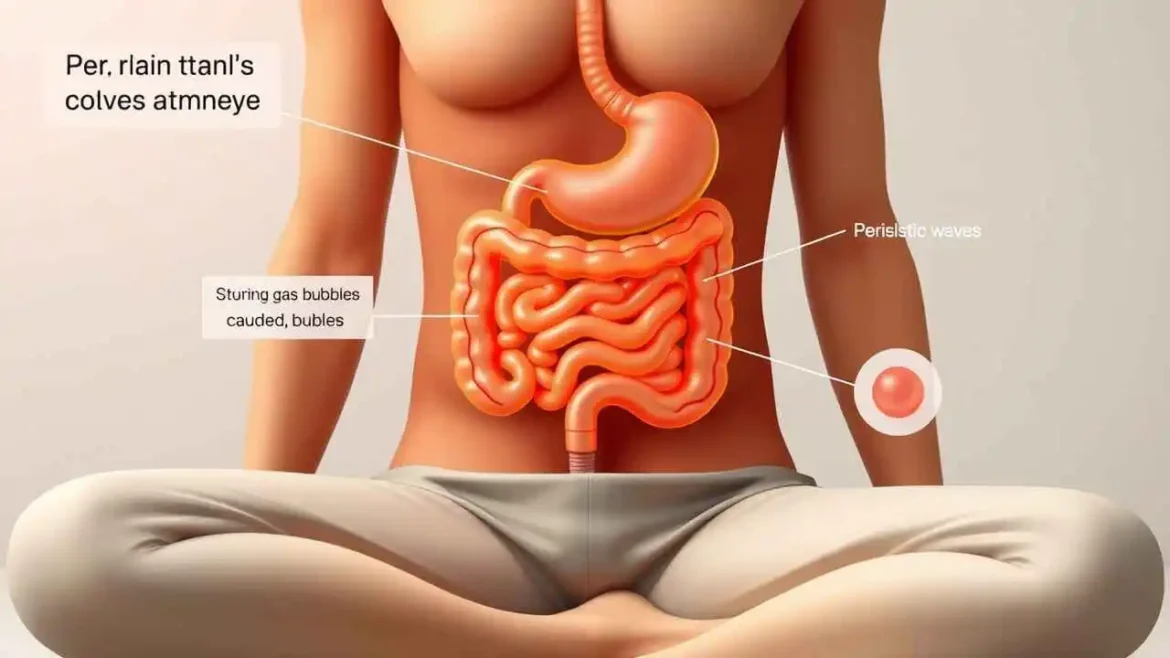
The Unseen Forces Within: Peristalsis, Borborigmi, and the Many Reasons Your Stomach Growls
We’ve all experienced it – that distinct, sometimes embarrassing, rumbling or gurgling sound emanating from our abdomen. Our stomach, or seemingly our intestines, starts to make noise, often leading us to think, “Ah, I must be hungry!” While hunger is certainly a common culprit, those internal noises, known scientifically as borborigmi (pronounced bor-buh-RIG-mee), are actually the audible result of a fundamental, constant process happening within us: peristalsis.
Understanding why our insides sound like a low-grade engine involves delving into the fascinating mechanics of our digestive system. We’re not just passively digesting food; our gastrointestinal tract is a dynamic, muscular tube constantly in motion, working tirelessly to process everything we consume and eliminate waste. Let’s explore this unseen world and decode the sounds it makes.
“The peristaltic movements are the means by which the contents of the stomach are constantly moved onward, and the gastric juice intimately mixed with the chyme.” – William Beaumont, American Physician, 1833
This rhythmic squeezing is controlled by the autonomic nervous system, meaning it happens automatically without us consciously controlling it. The process involves two types of muscle contractions:
- Circular muscle contractions: These muscles encircle the digestive tract and contract behind the bolus or chyme to prevent it from moving backward.
- Longitudinal muscle contractions: These muscles run lengthwise along the digestive tract and contract to shorten and widen the pathway ahead, allowing the bolus or chyme to move forward.
Peristalsis is not just about moving food along; it also plays a crucial role in:
- Mixing: It helps mix food with digestive juices and enzymes, facilitating the breakdown of complex molecules into simpler ones.
- Absorption: By bringing the digested nutrients into close contact with the intestinal walls, it enhances the absorption of these nutrients into the bloodstream.
- Waste elimination: It propels undigested material towards the rectum for elimination from the body.
The Growling Symphony: Why Our Stomachs Rumble
The rumbling sounds we associate with a growling stomach are primarily caused by peristalsis moving gas and fluids through the digestive tract. When the stomach is empty, these sounds become more noticeable. Here’s a more detailed breakdown of the contributing factors:
- Hunger: When the stomach is empty for a few hours, the brain sends signals to the digestive system to initiate peristalsis. This helps clear out any remaining food and prepare the stomach for the next meal. The resulting contractions of the stomach muscles, coupled with the movement of gas and digestive juices, create the characteristic rumbling sound.
- Digestion: Even after eating, peristalsis continues to move food through the digestive tract. The sounds may be less noticeable when the stomach is full, but they are still present.
- Gas: Gas is a natural byproduct of digestion. Bacteria in the large intestine ferment undigested carbohydrates, producing gas as a result. This gas moves through the digestive tract along with food and fluids, contributing to the rumbling sounds.
- Swallowing air: We unconsciously swallow small amounts of air throughout the day while eating, drinking, or even talking. This swallowed air can accumulate in the stomach and intestines, contributing to gas and bloating and, consequently, to the growling sounds.
Common Causes of Increased Stomach Rumbling
While some stomach rumbling is perfectly normal, excessive or unusually loud rumbling can sometimes indicate an underlying issue. Here are some common causes of increased stomach rumbling:
- Anxiety and Stress: The gut-brain connection is well-established. Stress and anxiety can significantly impact digestive function, leading to increased peristalsis and more noticeable stomach rumbling.
- Irritable Bowel Syndrome (IBS): IBS is a common disorder that affects the large intestine. It can cause a variety of symptoms, including abdominal pain, bloating, gas, diarrhea, and constipation. IBS can also lead to increased peristalsis and more frequent stomach rumbling.
- Food Intolerances: Certain food intolerances, such as lactose intolerance or gluten sensitivity, can cause digestive distress, including increased gas production and stomach rumbling.
- Certain Medications: Some medications, such as antibiotics and laxatives, can disrupt the balance of bacteria in the gut and affect digestive function, leading to increased stomach rumbling.
- Gastroenteritis: Viral or bacterial infections of the digestive tract (gastroenteritis) can cause inflammation and increased peristalsis, resulting in loud and frequent stomach rumbling, along with other symptoms like nausea, vomiting, and diarrhea.
Here’s a table summarizing the key differences between normal and concerning stomach rumbling:
| Feature | Normal Stomach Rumbling | Concerning Stomach Rumbling |
| Frequency | Occasional, especially when hungry | Frequent, occurring even after eating |
| Intensity | Mild to moderate | Loud and excessive |
| Associated Symptoms | None | Severe abdominal pain, diarrhea, constipation, blood in stool, weight loss |
| Duration | Short-lived | Persistent, lasting for days or weeks |
Demystifying Peristalsis: The Wave That Moves Us
At its core, peristalsis is a series of wave-like muscle contractions that move food, fluids, and waste through our digestive tract. Think of it like squeezing a tube of toothpaste from the bottom up – the squeeze propels the contents forward. This involuntary action is essential for life and occurs throughout the entire length of our gastrointestinal (GI) tract, from the moment we swallow.
Here’s a breakdown of where and how peristalsis works:





